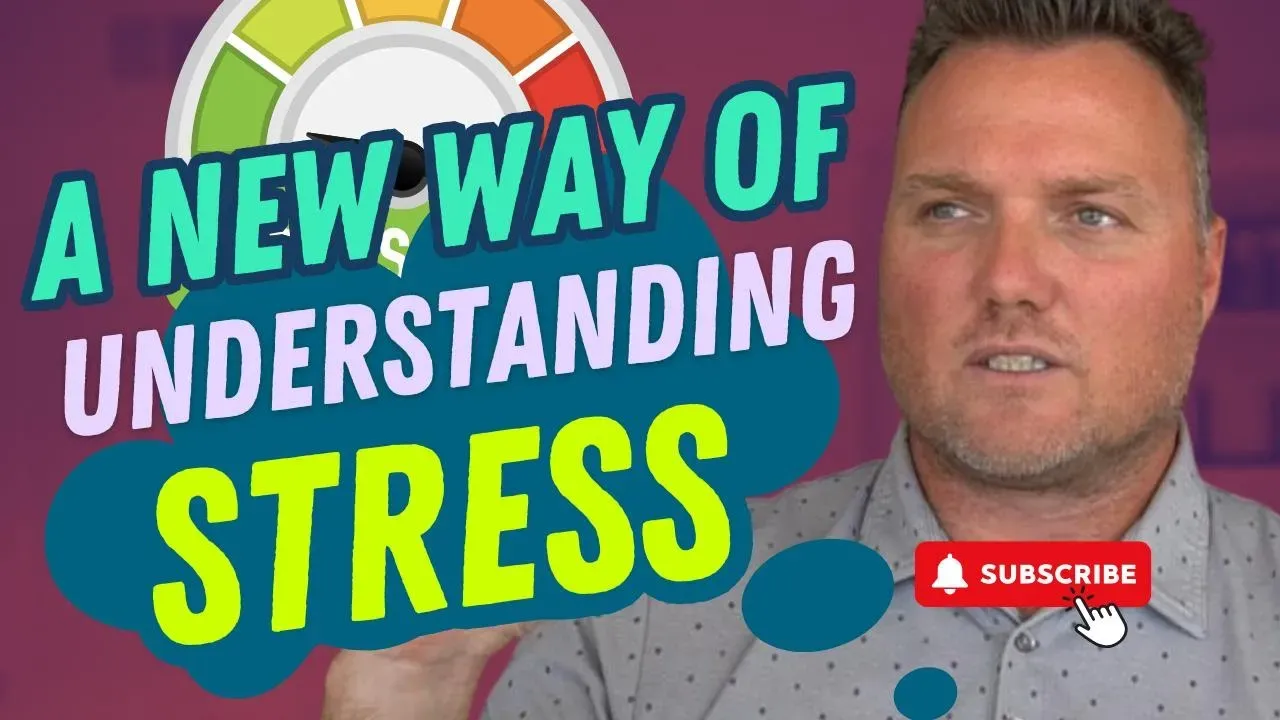A New Way of Understanding Stress | Breaking Free from OCD, Anxiety & Stress
Aug 04, 2025
A New Way to Understand and Handle Stress: Insights from Matt Codde
When it comes to stress, most of us find ourselves repeating the same phrase: "I’m so stressed!" But what does stress actually mean, and is there a better way to approach and handle it in our daily lives? In this post, we’ll dive into a fresh perspective on stress, inspired by Matt Codde, founder of Restored Minds.
What Is Stress Really?
According to Matt Codde, we often throw around the word "stress" without truly understanding what it encompasses. Stress, at its core, is the experience of lower emotions like fear, anger, guilt, or shame—usually triggered when life doesn’t align with our expectations.
A critical insight from Matt is that stress has less to do with external events and more to do with our internal resistance to them. The same external event can feel exciting at one moment, and stressful at another, purely based on our internal state.
The Misconception: Stress Comes from the Outside
Many of us believe that stress is caused solely by outside factors—our jobs, other people, or looming deadlines. Matt Codde explains that this “outside-in” approach to understanding stress makes life seem exhausting and overwhelming. However, this perception ignores the powerful role our mind and emotions play.
For example, you might be sitting calmly at home but find yourself worrying about an event happening tomorrow, feeling as stressed as if it's actually occurring right now. In reality, most daily stress is generated by our own psyche, not the outside world.
The Real Cause of Most Stress
Matt highlights that for the majority of us, stress is predominantly psychological and emotional. Our mind uses environmental triggers to surface unresolved or unprocessed emotions from the past. This activation of an internal "emotional tank" makes current situations feel more stressful than they actually are.
He suggests asking: “Does this situation cause stress for everyone, or just me?” Often, the stress is less about the event and more about what we’re carrying into it emotionally.
Why “Managing” Stress Might Not Work
The popular idea of “managing stress” often leads people to try controlling their environment or suppressing uncomfortable emotions. According to Matt Codde, this approach tends to cause more harm than good—leading to avoidance, repression, and escapism.
Instead of managing stress by pushing feelings away, Matt encourages confronting and releasing these emotions. By doing so, stressful experiences become opportunities for personal growth and emotional healing.
Changing Your Paradigm: A Whole New Approach
The key, according to Matt, is to change how you perceive and relate to stress. Shifting from an external blame game to an internal process of healing can completely transform your experience. Life’s perceived stressors become chances to let go of stored emotions, outdated beliefs, and limiting identity structures.
As you learn to recognize these internal opportunities for growth, you stop seeing stress as an enemy and start viewing it as a signpost for healing.
Action Steps to Handle Stress Differently
-
Question Your Assumptions: Let go of the belief that you fully understand stress or the only way to manage it.
-
Embrace Emotional Release: Rather than suppressing feelings, allow yourself to confront and process them.
-
Change Your Perspective: View triggering situations as opportunities for growth, not threats.
-
Observe Your Patterns: Notice when you're experiencing stress—is it truly about the external event, or what you’re bringing into it emotionally?
-
Focus on Internal Healing: Shift your attention from environmental “management” to internal liberation from unresolved emotions and limiting beliefs.


